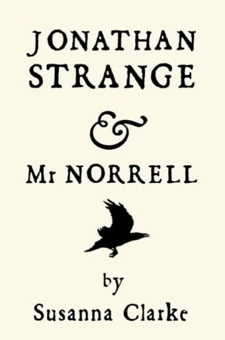When you reach a certain age as a reader you start to get a little jaded. You start to think you know what is and is not possible for writers to do with the crude tools they have available to them, by which I mean words. You get a feel for what somebody is attempting before they do it, and you mentally score their chances of pulling it off. It’s like watching an Olympic diver on TV, where they announce what he or she is going to attempt, and the degree of difficulty, and you think, oh, right, that’s a slam dunk. Or alternatively: oh, Christ, there’s no way, that is simply impossible, this is a disaster, I can’t look.
And then, once in a while, the writer and/or diver proves you wrong, and succeeds in doing something that you would have bet your spleen was absolutely impossible—too difficult, and too wonderful. You will know when this has happened, because all the hair on your forearms will stand up absolutely straight with excitement.
That’s what happened when I began reading Jonathan Strange & Mr. Norrell. I read it before it was published—I was given an advance copy—and had no particular expectations for it. I knew nothing of this “Susanna Clarke.” The book begins with Mr Norrell announcing to a society of magical scholars—students of the theory and history of magic, but not its practice—that he is a real magician, a practicing wizard, a creature they had long thought to be extinct in England. The scholars don’t believe him. So Mr Norrell, who doesn’t like being doubted, stages a demonstration.
There’s a sly meta-level to this, of course, because I could see what Clarke was setting up, and I was as skeptical of her chances as the scholars were of Mr Norrell’s. The degree of difficulty was just too high. She was proposing, in her wry, elegant, deceptively powerful Regency prose, to show me magic being worked, right in front of my eyes, no jump-cutting, no smoke, no mirrors, not even a sequined assistant to hold the props. I didn’t believe it. I didn’t think she was a practicing wizard. The East German judge sat back and licked the sharp tip of his No. 3 pencil and awaited a belly flop.
It never happened. Instead, magic happened: in the book Mr Norrell brings the stones of an old cathedral, York Cathedral, to life. They speak, and each stone has its own voice and its own story to tell. In a mixture of old English and Latin, a statue describes a murder it witnessed centuries ago, that it was powerless to stop. The scholars stand around and gape. I gaped too. It’s the most beautiful and viscerally convincing description of magic being worked that I’ve ever read, and I’ve read plenty. Reader, picture my forearms at that moment: they were like cacti.
It’s not a fluke. Clarke does this again and again in Jonathan Strange & Mr Norrell (and also in her book of related stories, The Ladies of Grace Adieu), and not just for its own sake but in the service of a rich, thrilling, moving human drama. I understand it took Clarke 10 years to write Jonathan Strange, but it reads as if she reeled off the whole book as one glorious improvisation, lightly and freely, in the span of a week. It is, I believe, the first fantasy masterpiece of the 21st century. I await her next. Whether it takes her 10 more years, or 50, the wait will have been worth it.
Lev Grossman is the New York Times-bestselling author of The Magicians and, since 2002, the book reviewer for Time Magazine. His writing can also be found in the Village Voice, Entertainment Weekly, Time Out New York, Salon, and elsewhere.










